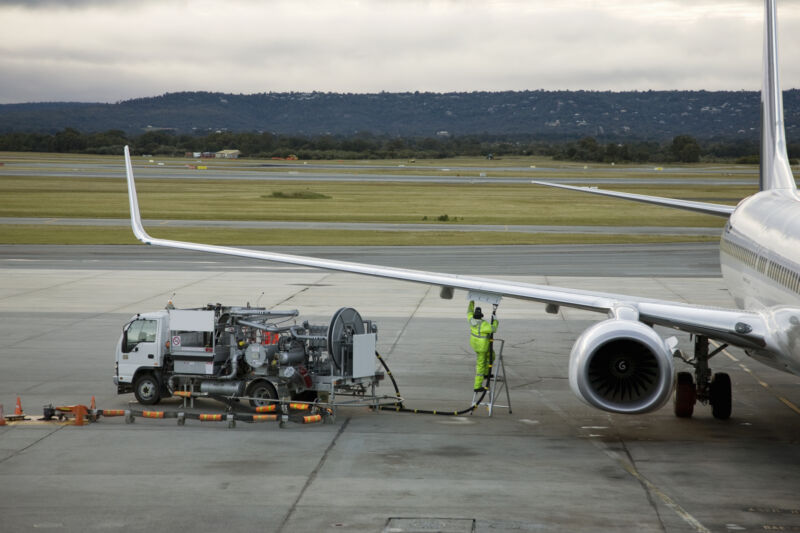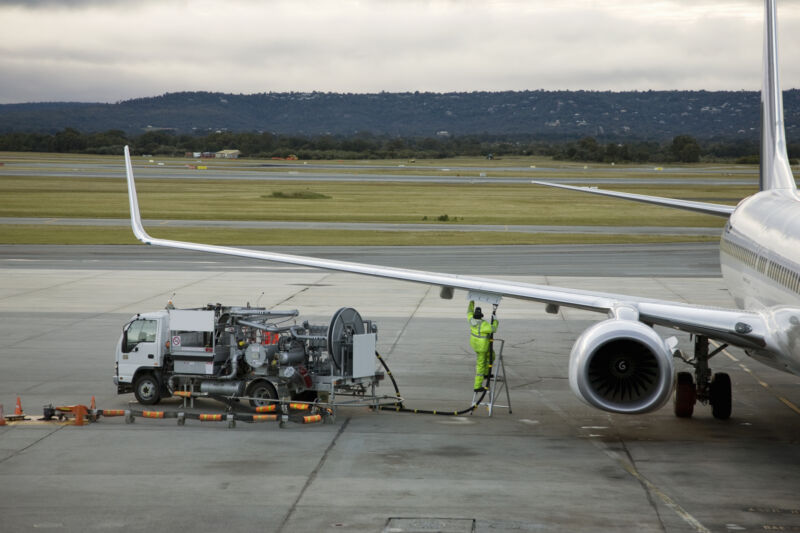
Enlarge (credit: Tobias Titz / Getty Images)
The world has a lot of plastic—8.3 billion tonnes of the stuff has been produced since 1950. It has so much plastic that humans have started trying to figure out ways to use the vast quantities of plastic waste we’re accumulating. For some, that means recycling; for others, that means making art. For a team of researchers based out of Washington State University, it means making jet fuel.
Turning waste plastic into fuel isn’t a new idea. Many researchers have achieved it through a process called pyrolysis, which involves heating plastic to between 300º C and 900º C in an oxygen-free environment. This breaks the substance down into fuel, along with some additional chemicals. Hongfei Lin, associate professor with The Gene and Linda Voiland School of Chemical Engineering and Bioengineering at WSU, thinks that he and his team have discovered a way to make the process more efficient and environmentally friendly.
The team has a track record of making fuels from biomass sources. A year and a half ago, however, they decided to look into chemically deconstructing polyethylene, one of the most common forms of plastic in the world. The team began trying out pretreating the plastic with different combinations of solvents and catalysts prior to heating.





